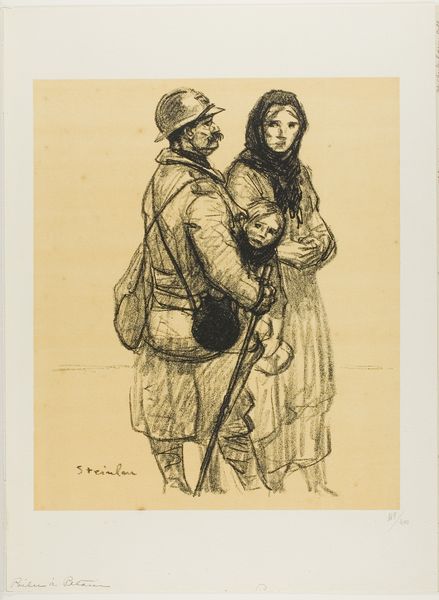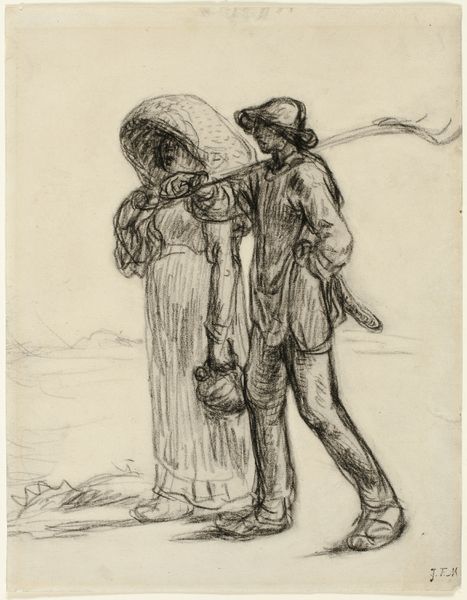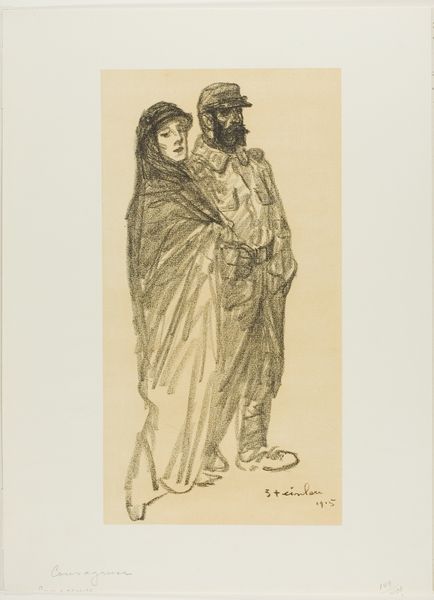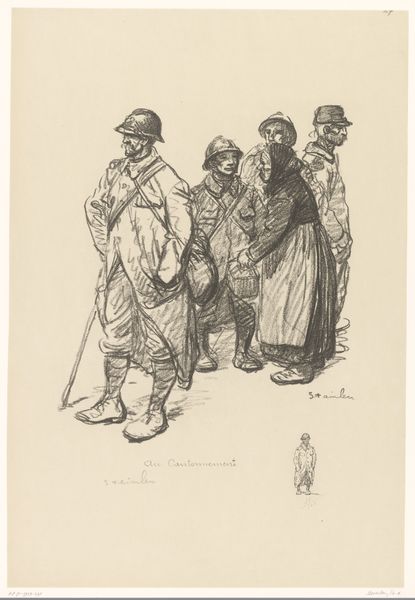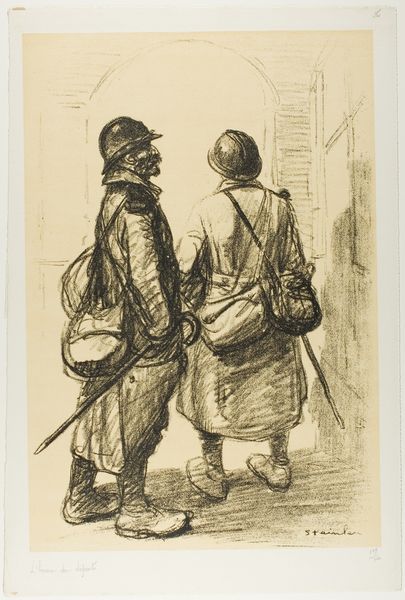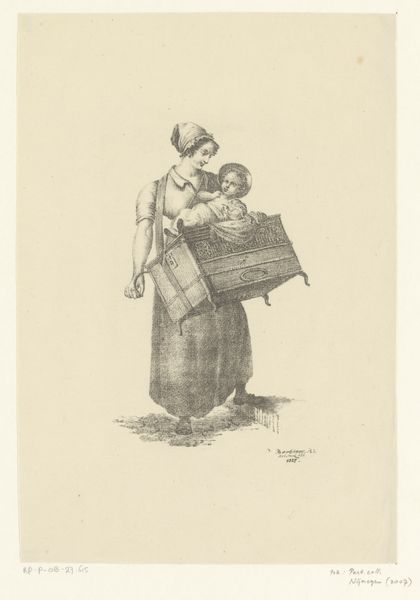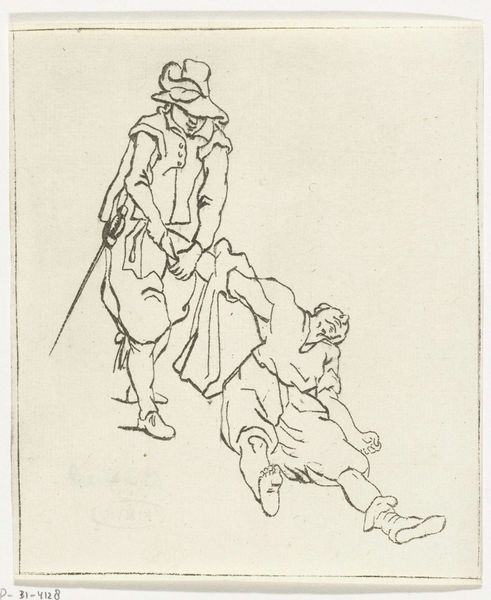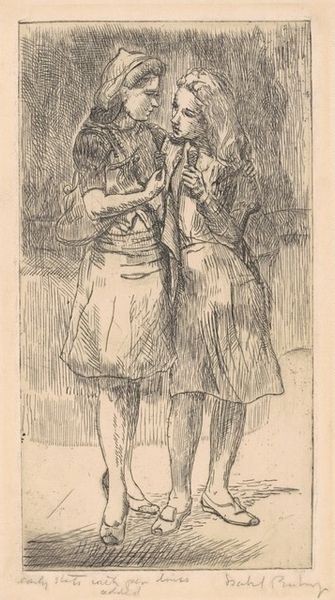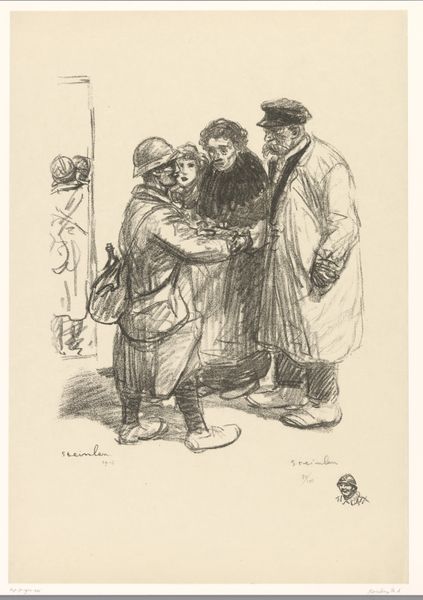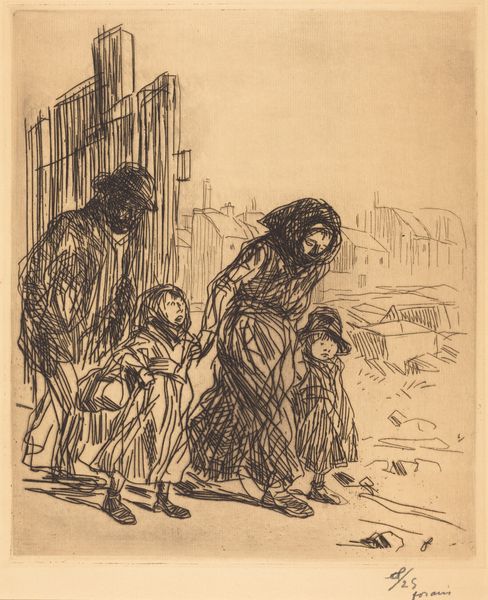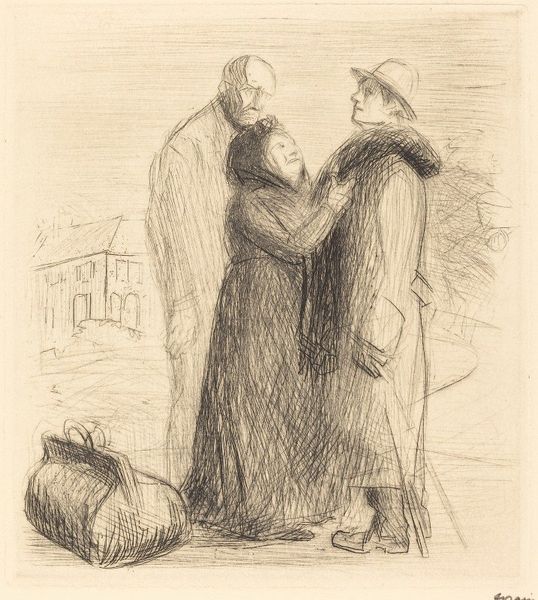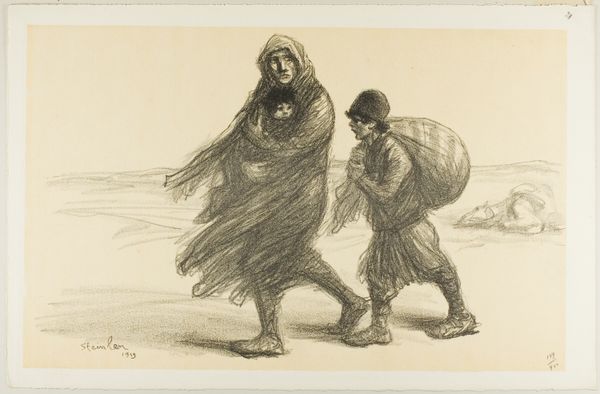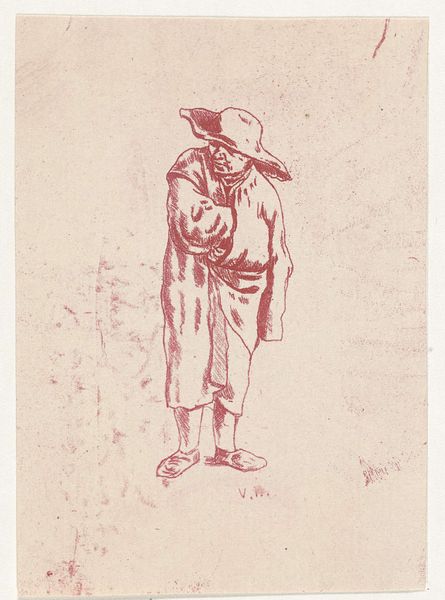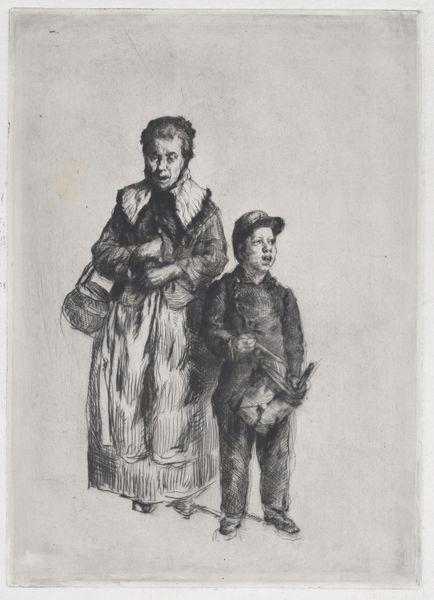
drawing, pencil
#
portrait
#
drawing
#
comic strip sketch
#
imaginative character sketch
#
quirky illustration
#
cartoon sketch
#
personal sketchbook
#
ink drawing experimentation
#
pen-ink sketch
#
pencil
#
symbolism
#
sketchbook drawing
#
genre-painting
#
storyboard and sketchbook work
#
sketchbook art
#
realism
Dimensions: height 450 mm, width 305 mm
Copyright: Rijks Museum: Open Domain
Curator: This emotive piece is by Théophile Alexandre Steinlen, created in 1916. It's a drawing depicting a soldier, a civilian woman, and a child during the First World War. It's rendered in pencil and ink. Editor: My gut reaction? Weariness. An overwhelming sense of burdened weariness permeates the scene. Curator: Absolutely. Notice how Steinlen uses line and shading to create that mood. The soldier, weighed down with his pack and rifle, almost blends with the woman and child. Their faces, though, are what really get to me. Editor: Indeed, all three figures share a similar expression – a vacant sadness. The woman's dark headscarf acts as a halo of sorts, emphasizing the pathos in her face. Is she a Madonna of the war, perhaps? Curator: It's fascinating that you pick up on that association. Head coverings of that sort traditionally symbolized mourning, of course, but maybe also faith. Consider the child clinging to the soldier. That physical connection is their anchor in what must have been utter chaos. But there is hope—this could easily represent steadfastness amid calamity. Editor: I see that continuity you're pointing to – visual and emotional echoes rippling through the years, as powerful today as they must have been then. The child cradled possesses no childhood innocence, just trepidation. That detail is what gets to me most, because Steinlen is telling a story of stolen youth, the end of the long summer vacation that turned into bitter cold so quick. Curator: War changes everyone, particularly the most vulnerable. In this stark sketch, Steinlen captured an instant during The Great War that resonates through so much art about the period. Its rough simplicity speaks volumes about the world as it unfolded. Editor: Leaving me with this thought: how poignant it is that the simplest lines, the sparest renderings, often carve the deepest truths.
Comments
No comments
Be the first to comment and join the conversation on the ultimate creative platform.
